The new Golf features redesigned, angular LED headlights and teledial alloy wheels for the GTI
Rebooted Golf brings new interior, design overhaul, long-range hybrids – and ChatGPT
Volkswagen has comprehensively rebooted the eighth-generation Golf in a bid to sustain its appeal to the end of the decade, when it will be replaced by the electric Mk9.
As it turns 50, the German firm’s all-time best-seller receives a wide-reaching suite of technology upgrades, usability enhancements, material improvements and a new look inside and out.
The powertrain line-up has been revamped, too, with the addition of new long-range plug-in hybrids, revised petrol and diesel options – and more power for the GTI hot hatch, which will head the line-up until the launch of the revised four-wheel-drive Golf R later this year.
Due in the UK in April, the 2024 Golf seeks to reinstate the model as Europe’s number one by sales volume after supply chain bottlenecks and a drop in popularity caused it to slip behind the likes of the Peugeot 208, the Dacia Sandero, the Volkswagen T-Roc and the Renault Clio in the sales charts.
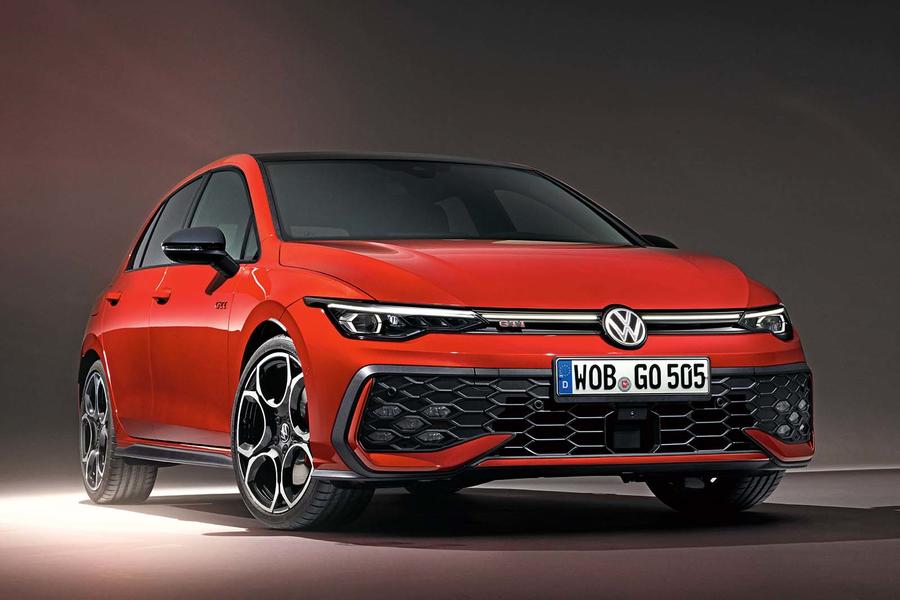
Styling elements that distinguish the new Golf include an illuminated Volkswagen badge at the front – a feature made possible by a recent change in Europe’s advertising laws – and a reprofiled front bumper with redesigned air ducts (decorated by a honeycomb insert on the GTI).
Another obvious change are the new-look, angular LED headlights, which can be optionally specified with VW’s IQ Light HD matrix technology.
There are new sills underneath the doors too, as well as a more prominent spoiler above the tailgate on the GTI, a restyled rear bumper and new-look LED tail-lights.
The 11 paint colours offered up until now have been extended to include four new metallic colours, and a black roof is being made available for the first time as an option on the GTI, GTE and R-Line variants of the Golf.
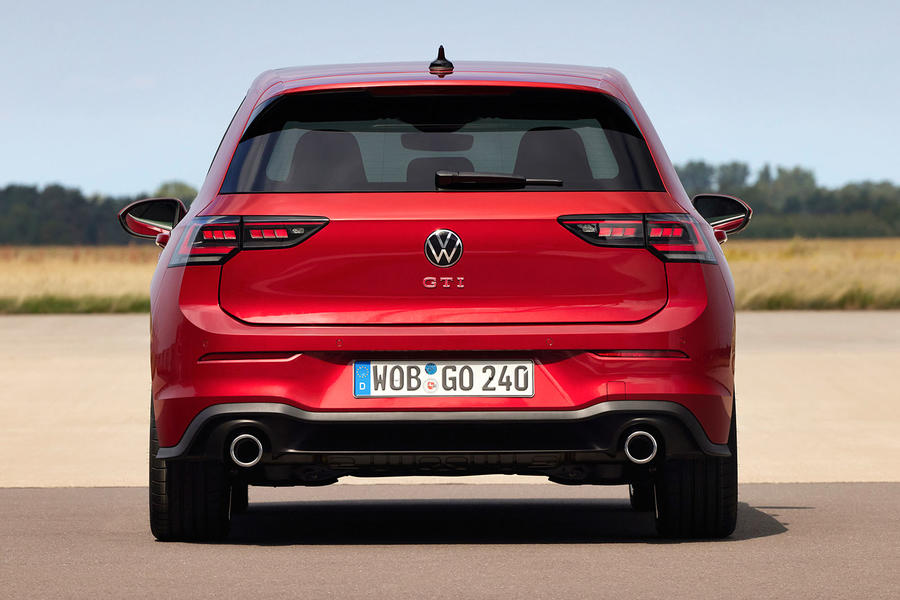
The GTI can also be ordered with carbonfibre exterior applications for the first time, and the iconic teledial alloy wheel design has returned to the options list for the first time since the Mk6 version as one of five new designs for the 2024 hot hatch.
Inside, Volkswagen has provided the upgraded Golf with a new multifunction steering wheel. It reverts back to button controls, dropping the widely criticised capacitive controls used on the pre-facelift Golf.
There are also higher-quality materials throughout the cabin to help lift perceived quality.
Ahead of the driver is a revised instrument display with new model-specific graphic skins, which can be selected using a new dial on the steering wheel.
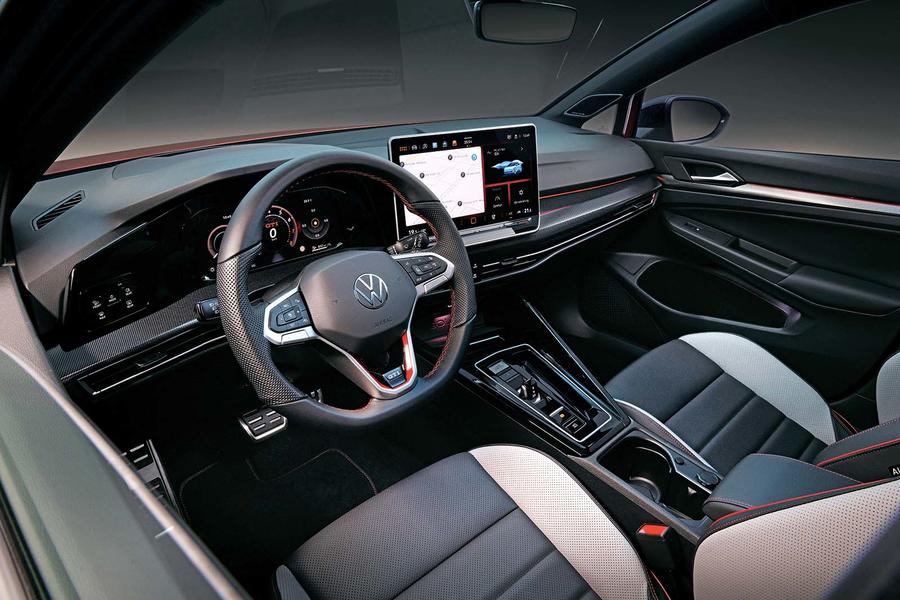
Crucial to marking out the ‘Mk8.5’ from the pre-facelift Golf is the introduction of VW’s new fourth-generation infotainment system, called MIB4, which has already been rolled out to the latest Tiguan, Passat and ID 3 as well as the new ID 7 saloon.
With quicker processing times, revamped menus and slicker graphics, it runs through either a standard 10.4in or optional 12.9in touchscreen display and introduces a new ChatGPT-powered voice assistant, which can be used to control the air conditioning, telephone and navigation system as well as access the internet.
In reaction to criticism of the outgoing Golf’s poor ergonomics, the touch slider for the temperature and volume control below the infotainment screen has been revised so that it is now backlit and new software provides it with speedier reaction times.
The upgraded Golf also brings Volkswagen’s 360deg View, Park Assist Plus and Park Assist Pro systems as options for the first time, which means that it can be parked remotely via a smartphone.
The engine line-up is exclusively four-cylinder, with all initial models adopting a traditional front-wheel-drive layout.
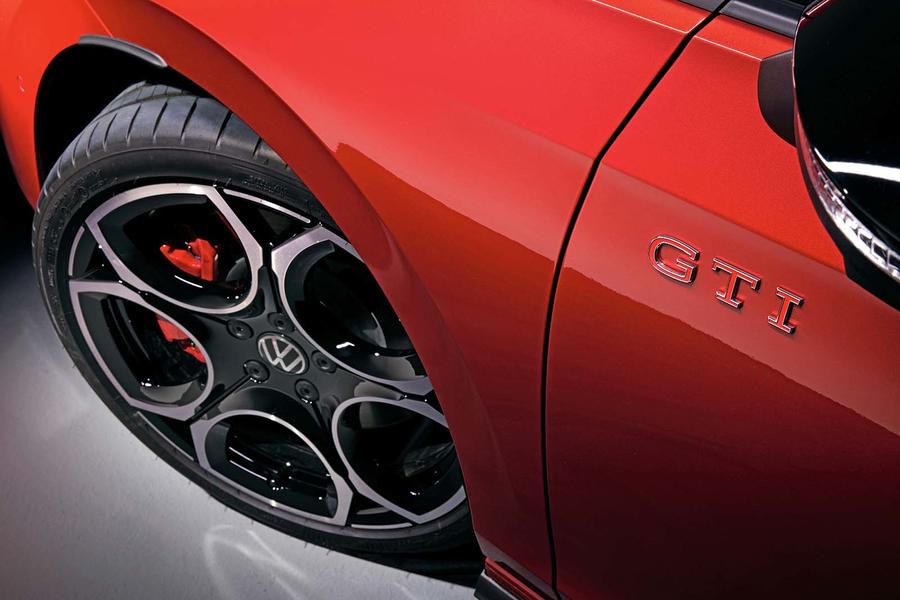
Included are 114bhp and 148bhp turbocharged 1.5-litre petrol units – with and without mild-hybrid technology – in a quartet of 1.5 eTSI and 1.5 TSI models.
There is also a reworked turbocharged 2.0-litre petrol engine with an added 13bhp, at 201bhp, in the upgraded 2.0 TSI – and 20bhp more in the 262bhp GTI, which is no longer available with a manual gearbox.
Volkswagen hasn’t revealed any performance claims for the GTI, but Wolfsburg insiders say its 0-62mph time undercuts the 6.2sec of its predecessor. Top speed remains limited to 155mph.
The diesels get a further developed version of Volkswagen’s turbocharged 2.0-litre engine, offering 114bhp and 148bhp in a pair of 2.0 TDI models.
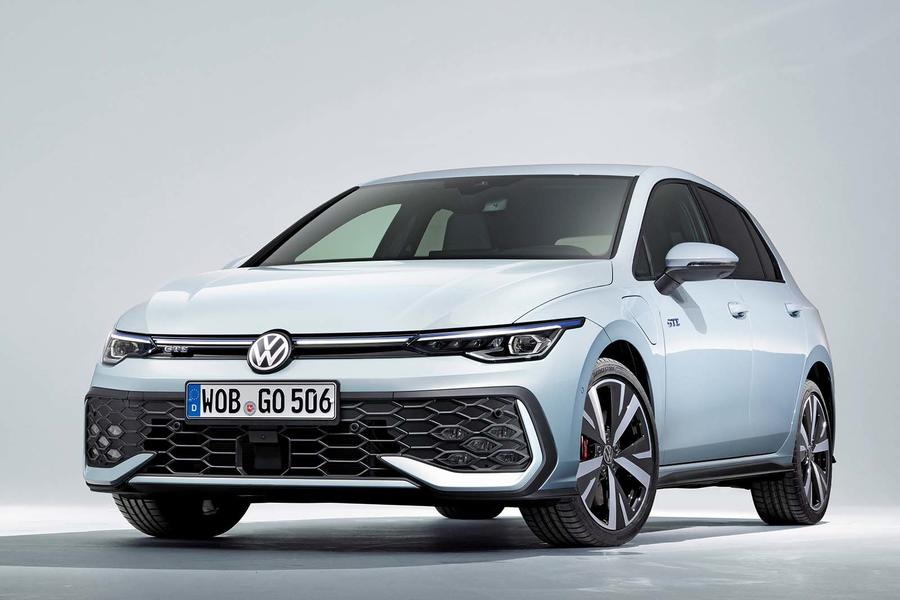
The existing plug-in hybrid models have been reworked with what Volkswagen describes as a second-generation petrol-electric drivetrain. Consisting of a turbocharged 1.5-litre engine (in place of the previous 1.4-litre unit) and an electric motor, it develops 201bhp in the new 1.5 TSI eHybrid and an added 20bhp over the outgoing model, at 268bhp, in the 2024 GTE.
The two plug-in hybrid Golf models also receive a 19.7kWh lithium ion battery in place of the 10.6kWh battery used in predecessor models.
It can be charged at up to 11kW using AC electricity and up to 50kW on a DC system for faster charging than before.
Volkswagen claims an electric range of around 62 miles for the PHEVs and says they will crack 620 miles at cruising speeds with both the battery and fuel tank brimmed.
The 114bhp 2.0 TDI and non-hybrid 1.5 TSI models continue to be sold with a standard six-speed manual gearbox. All other models receive an automatic dual-shift gearbox with either six or seven ratios.
Prices have still to be announced but are expected to climb slightly to give a base price of just under £30,000 for the entry-level petrol car, and nudge £40,000 for the auto-only GTI.
Source: Autocar
